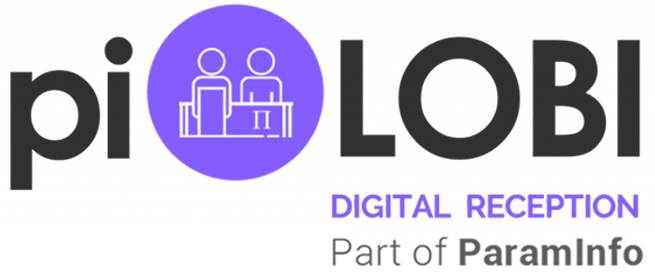
Hotel Front Desk Software: Top Picks for Hassle-Free Check-Ins
Are you looking for the best hotel desk software to streamline the check-in process in your hotel and improve your guests’ satisfaction?
In 2025, the hospitality industry is moving away from traditional front desk tasks toward digital and automated systems. Long lines at check-in counters and paper-based forms are giving way to contactless check-ins, mobile key technology, and digital registration cards.
And thus, hotel managers and owners are now choosing automated hotel front desk software to cut waiting times, remove manual data entry, and make check-ins smoother for guests.
Now, the tricky part is selecting the best front desk software, as there are numerous options, and not all are alike. In this blog, we’ll help you sort through the choices.
We’ll cover the main features and advantages of front desk software, highlight some top front desk software in the hospitality sector, and explain what to consider when searching for the ideal hotel front office system.
What Does Hotel Check-In Software Do?
Hotel check-in software is a tool that helps speed up and simplify check-ins. It lets guests sign in, get into their rooms, and pay without much direct interaction with staff.
This system uses things like mobile apps, online registration, and self-service kiosks to take care of tasks. These include gathering guest info, handling bookings, and managing payments.
By switching from manual check-ins to digital methods, hotels can cut costs, avoid long lines at the front desk, and create a better experience for guests.
Earlier, guests used to fill out forms and use physical keys when checking into hotels. Now, mobile check-ins and contactless systems have made this process simpler.
People can check in using their phones, unlock their rooms with smart locks, and handle payments with their devices.
Technology keeps reshaping the check-in experience, making it easier and quicker to use. Modern hotels rely on mobile key technology, QR codes, and apps, which help guests skip lines and get everything they need without much hassle or physical interaction.
Switching to mobile check-in automation saves time and gives hotels more chances to streamline their operations, cut down on physical contact, and offer a more pleasant experience to guests.
How Does Hotel Check-In Software Work?
Modern hotel check-in software makes checking in simpler by letting guests use online tools or self-service kiosks. Guests can finish their check-in before arriving by using a mobile app or website.
They just need to add their details, pick their room options, and make special requests. This eliminates long lines at the reception desk, speeds up the process, and reduces waiting.
The system protects guest details, monitors room availability, and generates digital keys or QR codes to unlock rooms. These details can be sent straight to the guest’s phone.
When guests arrive, they can head to their room or use a self-service kiosk to confirm their key and pick it up. Hotel staff receive updates about the guest’s arrival and the room being ready to use.
The software reduces front desk tasks, letting staff focus more on personal service and offering guests a smoother and more secure stay.
Features like automatic check-out, bill payment, and a system to collect feedback after a stay boost how operations run overall.
Advantages of Hotel Check-In Software
Using hotel front desk software in hotels offers a lot of benefits. Below are some key ones:
1. A Better Guest Experience
Hotels can make a great first impression with quick and easy check-ins. Guests go through a simple process that saves them time and improves their overall happiness right away.
2. Smoother Operations
Hotels can handle repetitive front-desk jobs, giving staff more time to focus on offering personal service and creating memorable moments for the guests.
3. Growing Revenue Options
Hotels can use the check-in process to offer upgrades, special services, or extras. This opens up more ways to earn while making the guest’s stay even better.
4. Better Accuracy
Hotels can link the software to their PMS. It helps fix human errors in things like guest details, room bookings, and payments. This creates smooth operations and builds trust by improving accuracy.
5. Touch-Free Ease
People want safer and cleaner options now. Contactless check-in lets both guests and staff handle check-ins in a safe, hands-free, and easy way.
Key Features of Modern Hotel Front Desk Software
To pick the right reception software, aim for features that boost productivity and guest happiness.
1. Contact-Free Check-Ins
Guests can use QR codes and phones to check in on their own.
It makes the process faster and safer by removing physical interaction.
2. Badge Printing and Host Alerts
The system prints visitor badges and includes photo IDs. It also sends automatic alerts to hosts as soon as guests check in.
3. Real-time Monitoring and Cloud Access
This front desk system works on the cloud and shows live visitor tracking. Admins can oversee check-ins from anywhere to keep operations running.
4. Enhanced Security Features
The hotel front desk software boosts security by capturing photos during check-in, using e-signatures, and keeping visitor logs. It also sends alerts for restricted area access to ensure guest safety.
5. Flexible and Scalable Options
You can adjust the software to fit your hotel’s specific front desk needs. It works well for small hotels, boutique stays, and even large hotel chains.
List of Top 5 Hotel Front Desk Software
piLOBI
piLOBI ranks as a leading guest management system that streamlines visitor check-ins with smart technology and enhances workplace safety. It manages visitor movement and provides instant data using automation. This system speeds up check-ins and helps reception teams work better.
Main Features
- Captures Visitor Faces
- Notifies Hosts
- Allows Smart Pre-Registrations
- Issues Digital Badges
- Displays Live Dashboards
Mews
Mews stands out as a cloud-based property and hotel front desk software designed to reshape daily tasks in hospitality. Mews reduces manual tasks and simplifies the check-in and check-out process through automation, giving staff more time to focus on improving guest satisfaction.
The system combines reservations, housekeeping, payments, and analytics into a single easy-to-use dashboard. Its mobile-first design helps staff work from anywhere, making it ideal for modern hotels and hotel chains.
Key Features:
- Cloud-based management for properties
- Mobile-friendly check-in and check-out
- Detailed reporting and insights
- Built-in payment processing
- Compatibility with many third-party tools
Canary Front Desk Software
Canary’s front desk software simplifies hotel management by automating routine tasks and improving guest communication. Teams can set it up in under 30 minutes, and its user-friendly interface makes it easy to use.
Its contactless check-out feature helps guests finish their stay using their phones, which often leads to a noticeable rise in 5-star reviews. Hotels can also use dynamic upselling options to promote room upgrades, spa deals, early arrivals, and other perks during a guest’s visit.
Canary reduces front desk tasks by automating manual workflows. This allows staff to focus on creating more personal and efficient interactions with guests while also generating extra income through automation.
Key Features:
- Setup takes less than 30 minutes.
- Mobile check-out without contact
- Flexible upselling, like upgrades and add-ons
- User-friendly design for staff
- Boosts guest happiness and reviews
Cloudbeds
Cloudbeds is a well-known hotel front desk software designed to simplify property management through its all-in-one system. It helps reduce manual tasks by merging reservations, housekeeping, guest communication, and channel management into one dashboard.
Its drag-and-drop calendar makes booking management simple, while its built-in revenue management features improve pricing strategies. Hotels can connect POS systems, CRM platforms, and marketing tools, with access to over 300 third-party integrations.
Cloudbeds works with secure payment systems and supports multiple languages. This makes it a good choice to use in a worldwide market. It fits well with boutique hotels, small 5-star properties, hostels, or small hotel groups needing a flexible cloud-based system.
Key Features:
- A calendar to organize reservations with drag-and-drop ease
- Built-in channel management to work with OTAs
- Pricing tools to boost revenue and manage rates
- Safe payment processing for worldwide use
- Over 300 integrations with third-party services
Hotelogix
Hotelogix provides a simple property management and hotel front office system created to help small and mid-sized hotels. It keeps daily tasks running with a visual interface that shows real-time updates on room availability, guest check-ins, and reservations.
The system connects with OTAs and GDS to boost both distribution and occupancy rates. It also supports multi-user access so that front desk teams can collaborate without any hassle.
Hotelogix helps hoteliers save time, boost earnings, and offer tailored service. It provides tools like upselling prompts, automated billing, and performance tracking dashboards. Since it runs on the cloud, users can access it from anywhere, making it ideal to handle changing business needs.
Key Features:
- Front desk dashboard with visual tools
- Connections to OTA and GDS networks
- Real-time access for multiple users
- Tools to upsell and engage guests
- Billing and reporting automation
Final Thought
Hotel front desk software plays a key role in helping hospitality businesses manage their operations. It allows hotels to save time and cut down on mistakes by organizing tasks like reservations, billing, guest check-ins, and communication all in one place. This gives staff more time to improve the guest experience.
Hotels, whether they are small boutique spots or massive chains, rely on this software to handle their daily tasks. In the competitive world of hospitality, choosing the right front desk tools has become a necessity. It is not just about keeping up; it helps boost efficiency, keeps guests coming back, and supports steady growth for hotels big and small.




